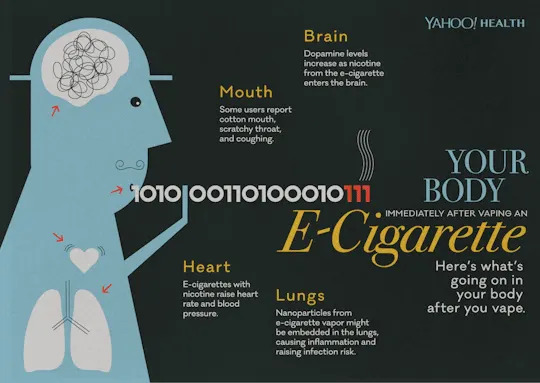Electronic cigarettes, often marketed as safer alternatives to traditional smoking, pose significant health risks. Yahoo experts highlight several concerns based on current research.
Key Health Risks of E-Cigarettes
Nicotine Addiction: Most e-cigarettes contain nicotine, which is highly addictive and can harm adolescent brain development. Youth usage may lead to lifelong dependence.

Lung Damage: Inhalation of aerosols containing ultrafine particles, volatile organic compounds, and heavy metals (e.g., nickel, lead) is linked to lung inflammation, asthma exacerbation, and EVALI (e-cigarette/vaping-associated lung injury).
Cardiovascular Stress: Nicotine spikes blood pressure and adrenaline levels, increasing heart rate and elevating risks of heart attacks and strokes.
Toxic Chemical Exposure
E-liquids and their aerosols contain multiple hazardous substances, even when labeled “nicotine-free”:
- Formaldehyde and acrolein (carcinogens)
- Diacetyl (linked to “popcorn lung”)
- Flavoring additives with unknown long-term effects
Heating mechanisms can generate new toxins not present in the original liquid.
Misleading Safety Perceptions
While e-cigarettes expose users to fewer carcinogens than combustible cigarettes, experts emphasize:
- No tobacco product is safe, especially for non-smokers and youth.
- Long-term health impacts remain understudied.
- They are not FDA-approved smoking cessation tools.
Expert Consensus: E-cigarettes are harmful to health, particularly for young people and non-smokers. Current evidence does not support their safety, urging regulatory action and public awareness.









